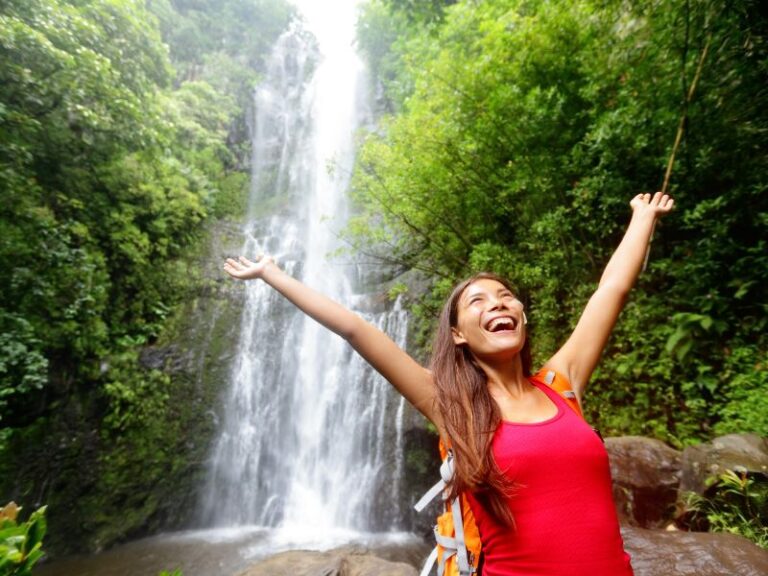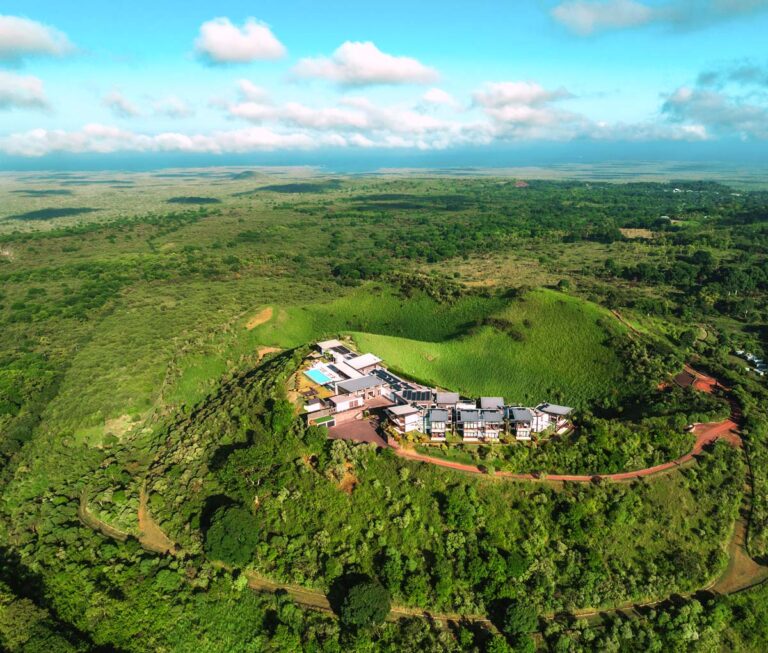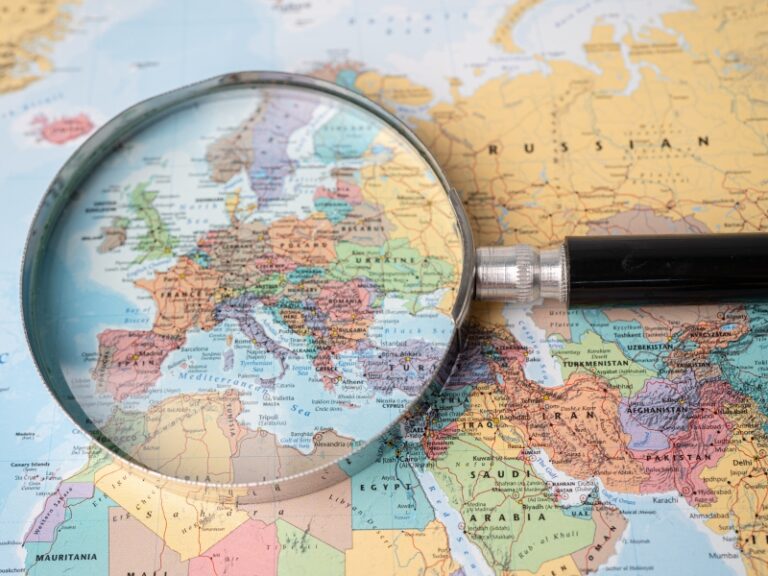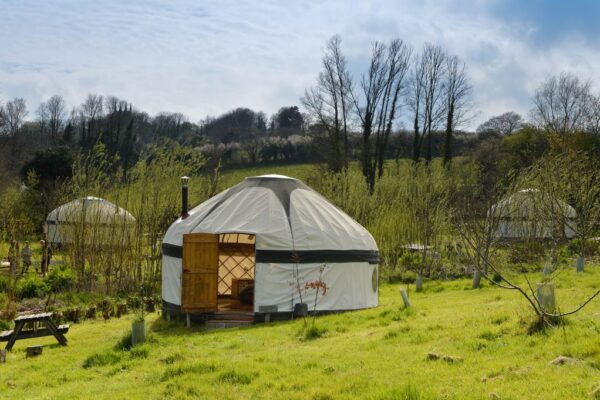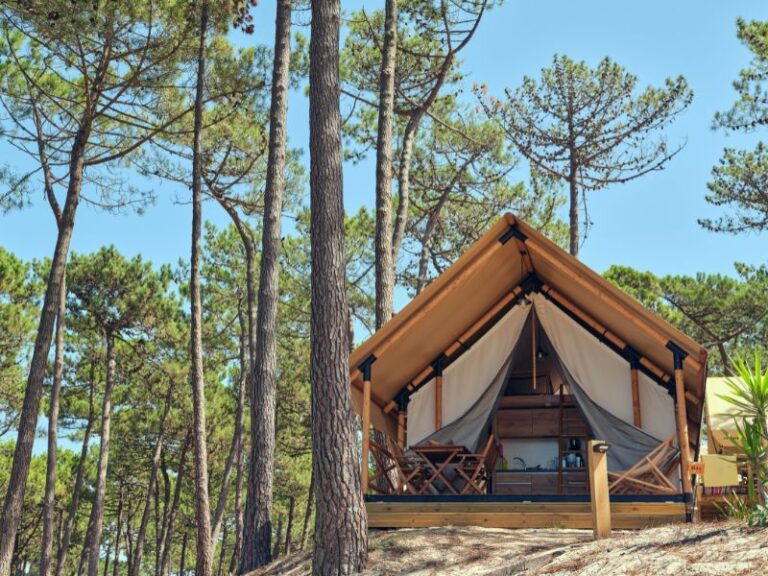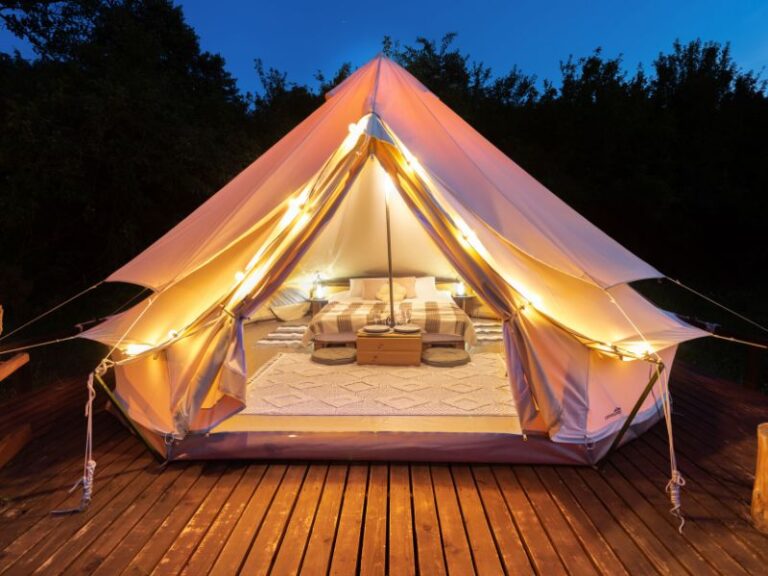What are Eco-Retreats? 7 Ways They Differ From Eco-Lodges
When it comes to eco-friendly stays, a variety of terms can be used. However, many of them are specific to a certain type of accommodation. Two terms often used interchangeably are eco-retreat and eco-lodge. Although they sound similar, there are many differences between the two! This article will highlight their differences to help you understand what aspects each one offers.
What are eco-retreats?
An eco-retreat is a facility that’s committed to sustainability and often offers a wide range of activities and longer-term stays. Rather than simply booking a stay, retreats can involve group events and classes such as yoga, meditation, and mindfulness.
What are eco-lodges?
Eco-lodges are accommodations in undisturbed, remote natural areas where both construction and operation have the lowest impact possible on the environment. They are not only part of the local community, but they are active participants in protecting nature and culturally sensitive areas.
7 differences between eco-lodges and eco-retreats
On-site activities
You’ll generally find that eco-retreats offer many more onsite activities for guests. Eco-lodges are often just a place to rest your head, whilst a retreat is about the whole experience. This is one of the biggest differences between the two!
For example, the Elysian Retreat in the Whitsundays is a luxury eco-retreat that offers a variety of inclusive activities. Snorkeling, paddleboarding, kayaking, and yoga are all included in the stay, and some other activities and tours are available to book.
However, if you take a look at the Burnhead Bothies in Scotland, you’ll find there are no activities available on-site. With the scenic surrounding area and beautiful cabin, this isn’t a negative but is simply an example to showcase the difference between the two.
Group events
Eco-retreats often organize group events for activities such as yoga, surfing, personal growth, and cooking classes. Often these group events (or retreats) specifically aim to develop these skills over a couple of days or weeks.
For example, the Danyasa Yoga retreat offers a 5-6 day ‘journey into bliss’ experience. It focuses on reconnecting with yourself through yoga, meditation, and restoration. They also offer a retreat that focuses on yoga and surfing.
However, eco-lodges such as Wya Point in British Columbia tend to offer daily activities, if they offer any at all. This eco-lodge offers daily activities of whale watching, surf lessons, and fishing charters, but no group events over several days or a week.
As eco-retreats often host large groups, you’ll find that the accommodation is more likely to have shared facilities. This is to lower their impact on the environment, reduce the use of materials, and give people the chance to spend time together.
The perfect example of this is the Cotna eco-retreat in Cornwall. They have a variety of accommodations on-site, including yurts, a shepherd’s hut, and a straw bale studio, and they have shared shower facilities nearby for guests to use. If you’re staying in an eco-lodge, you’ll often have private facilities for yourself, as they don’t need to cater to big groups.
Connecting with nature in a spiritual sense
When it comes to key differences between eco-retreats and eco-lodges, this is a big one! Not only do eco-retreats allow you to be close to nature, but they go one step further. They often try to connect you to nature spiritually by offering activities and workshops.
The Maui Eco Retreat focus on reconnecting guests with nature and their inner being. They offer yoga, shamanic nights, aquatic Lemuria workouts, and much more to help you nourish your body, spirit, and mind. They also have an agroforestry garden, fruit orchards, and an organic garden which they encourage guests to visit, so they can connect with the land.
The likes of the Hix Island House in Puerto Rico do have a pool on-site and offer pilates & yoga, but it’s more to offer guests the ultimate relaxing stay rather than connect them spiritually to nature.
Not as secluded
Eco-retreats are generally much larger than eco-lodges, as they cater to big groups and often have many more facilities and activities available.
A prime example of this is the Danyasa Yoga Retreat in Costa Rica. Although it’s located at the base of a rainforest, and on the bank of the Baru River, it’s surrounded by many other buildings, including hotels and restaurants.
This is a striking difference compared to some eco-lodges in Alaska. If you take Camp Denali as an example, you’ll see that it’s situated in an incredibly remote location, with no other infrastructure in sight.
Larger capacity
As mentioned previously, eco-retreats host a lot more people than eco-lodges. They also offer an array of group activities that require many more facilities. This means they’re often much larger than most eco-lodges.
The Haramara Retreat in Mexico has 18 individual casitas spread across a private beach and connected via a network of trails. They cover quite a large area, with an open-air dining room, two yoga shalas, and an infinity pool close by.
However, when you take a look at Callie Bothy in Scotland, there is only one eco-lodge on site. It’s a more secluded property and takes up much less space.
Meeting place
Eco-lodges are generally just comfortable and eco-friendly places to relax and rest your head. The accommodation is often incredibly secluded, meaning you get a private experience.
Eco-retreats are slightly different as they primarily focus on connecting with other people and activities as a group.
The Namosi eco-retreat in Fiji focuses on team building and fun and has several workshops that center on bringing people together. They also offer a variety of guided tours and activities for guests at the eco-retreat. These tours aren’t private and will be made up of different people staying at the accommodation. It’s the perfect way to get to know the people you’re staying with and meet some new friends!
More ecotourism articles
Emese Maczko is a travel blogger behind Eco Lodges Anywhere. Having explored several destinations around Europe, the US, Indonesia, and Australia, and resided in Germany, the United Kingdom, and Luxembourg, Emese possesses a keen understanding of diverse cultures and an appreciation for the beauty of each destination she visits. She advocates for sustainable travel and ecotourism.


